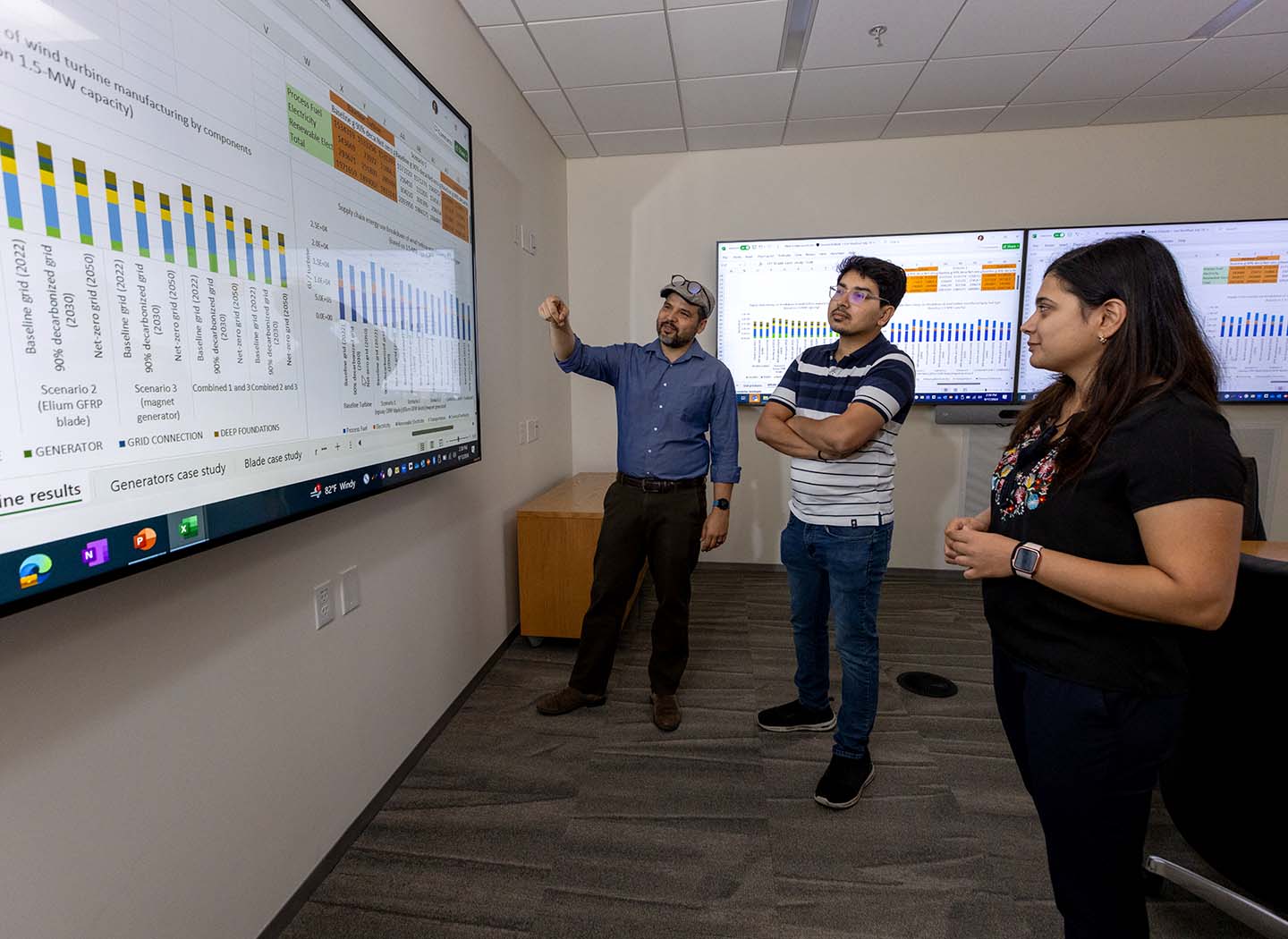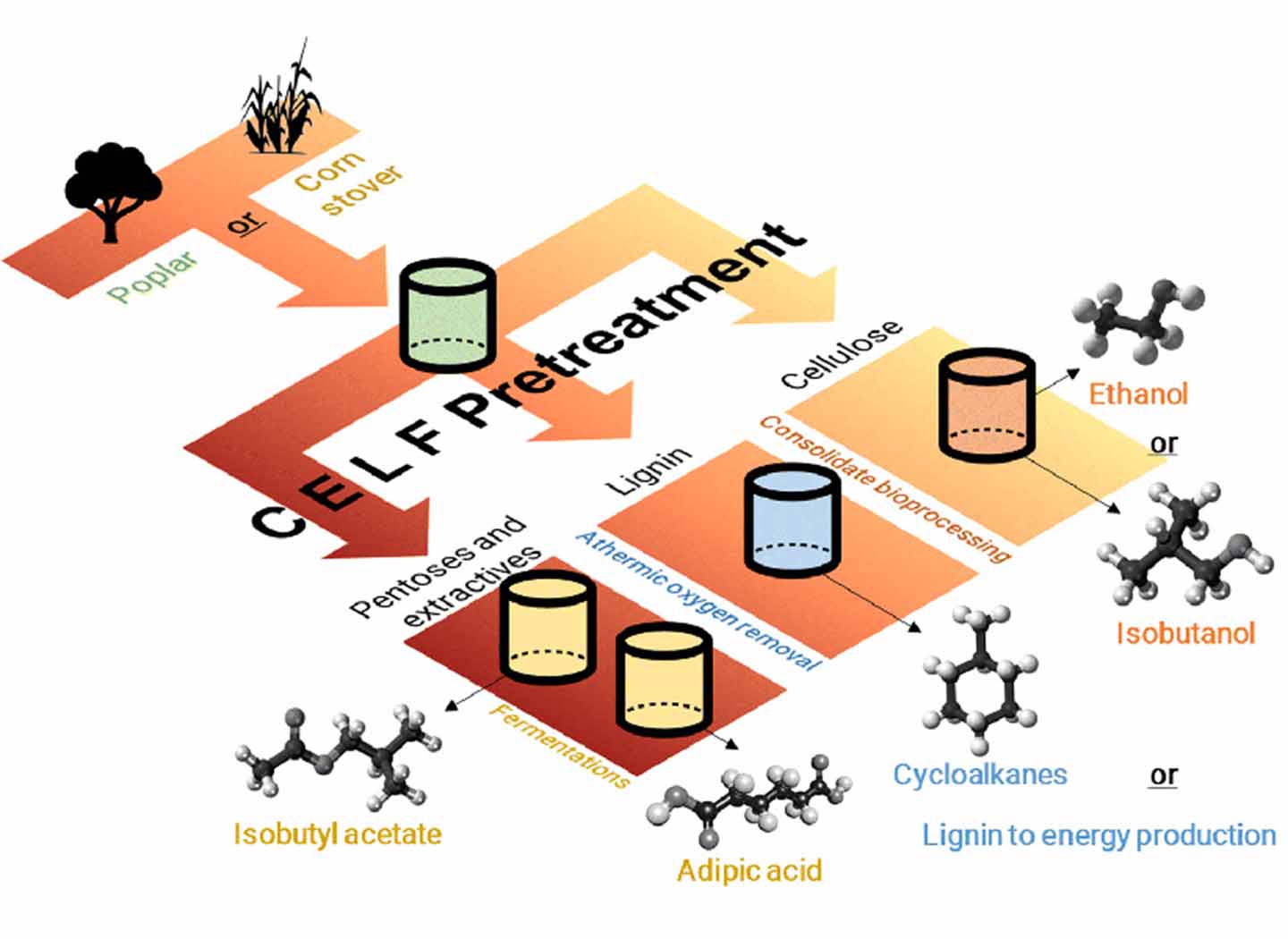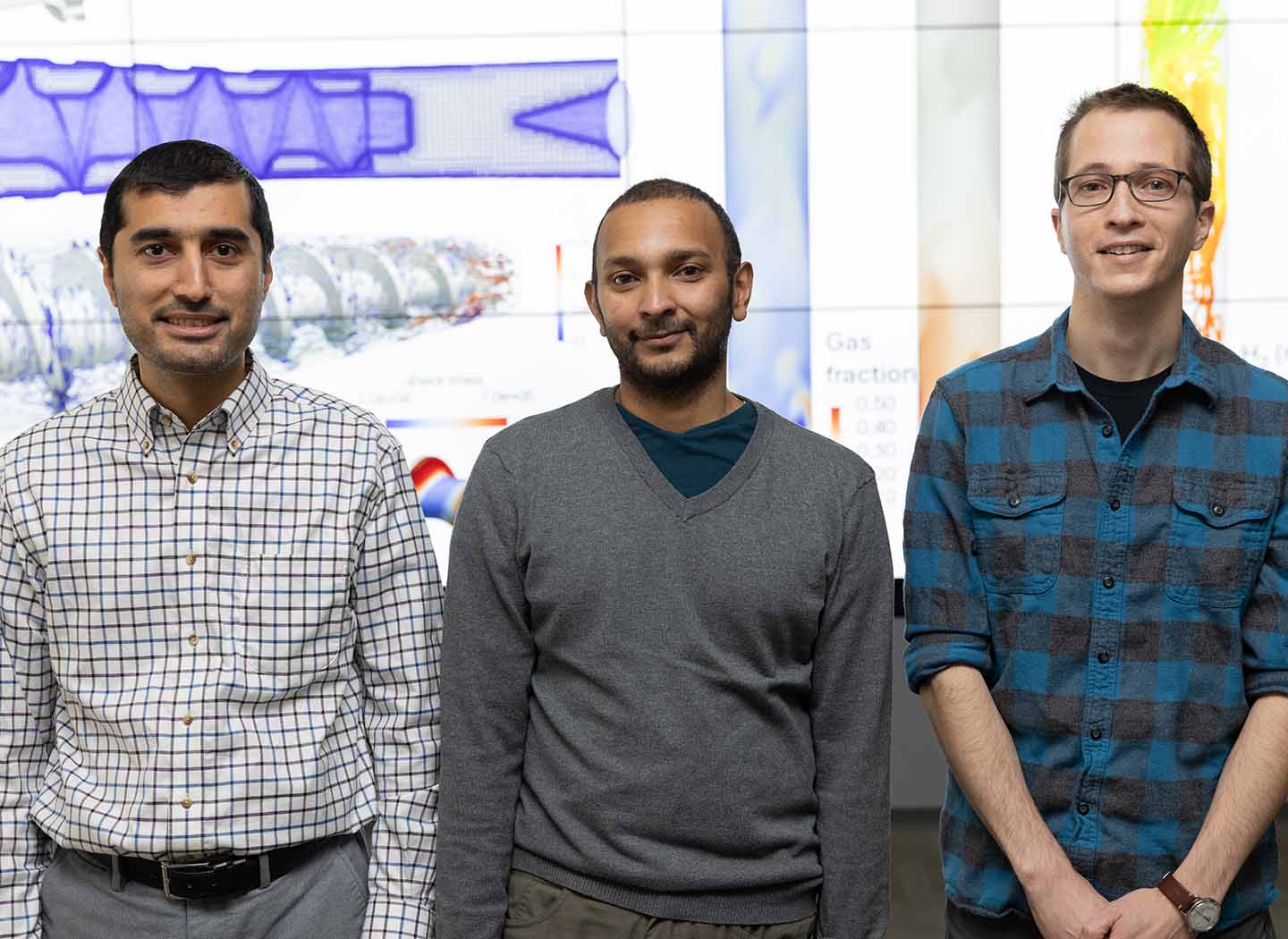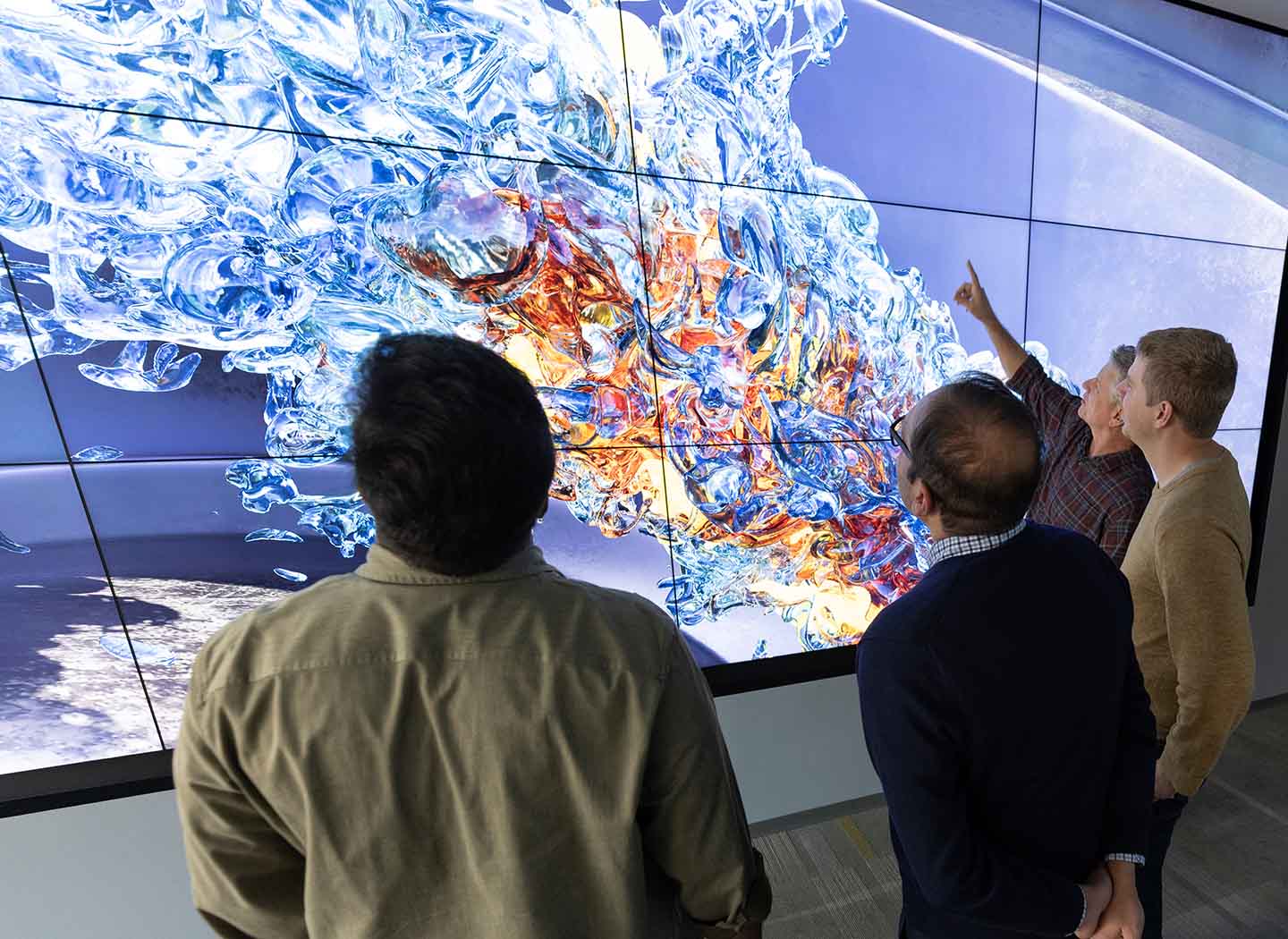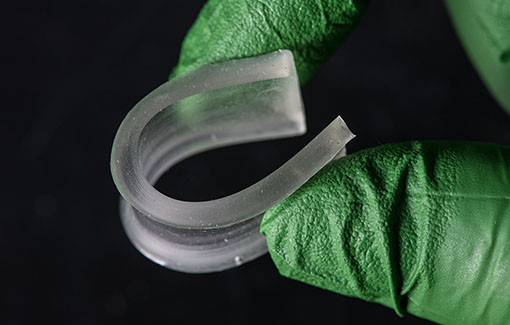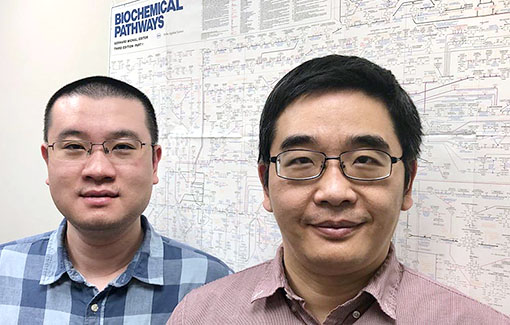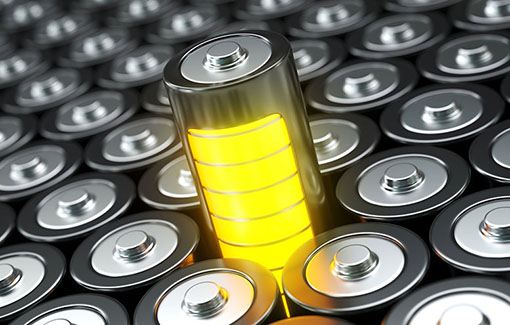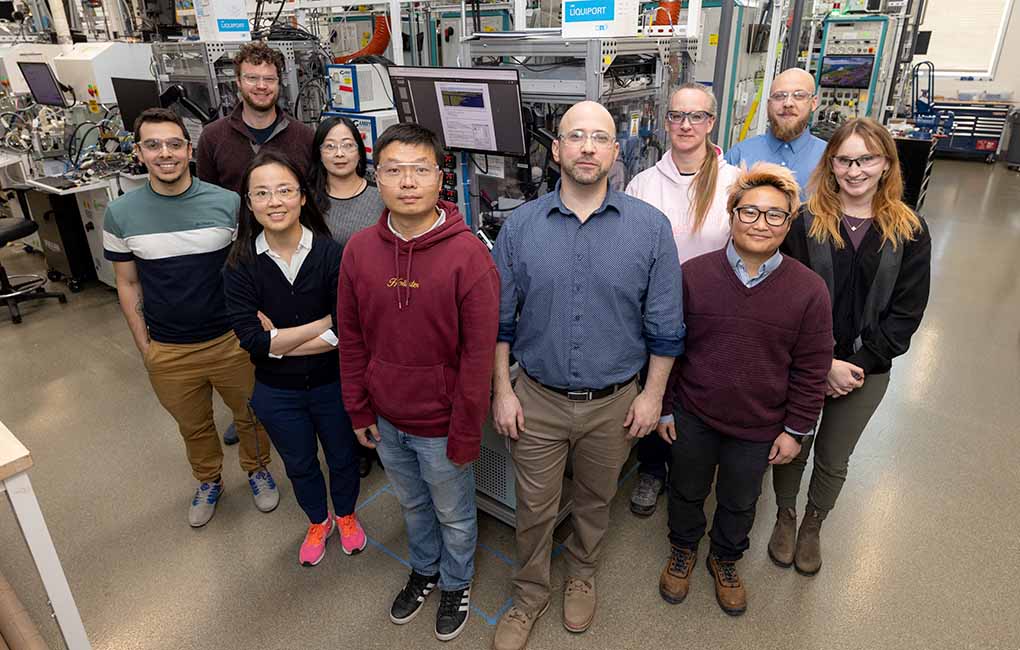Analysis, Characterization, Modeling, and Simulation Research
NREL's analysis, characterization, modeling, and simulation bioenergy research and development capabilities support low-carbon technologies with near- to long-term market opportunities.
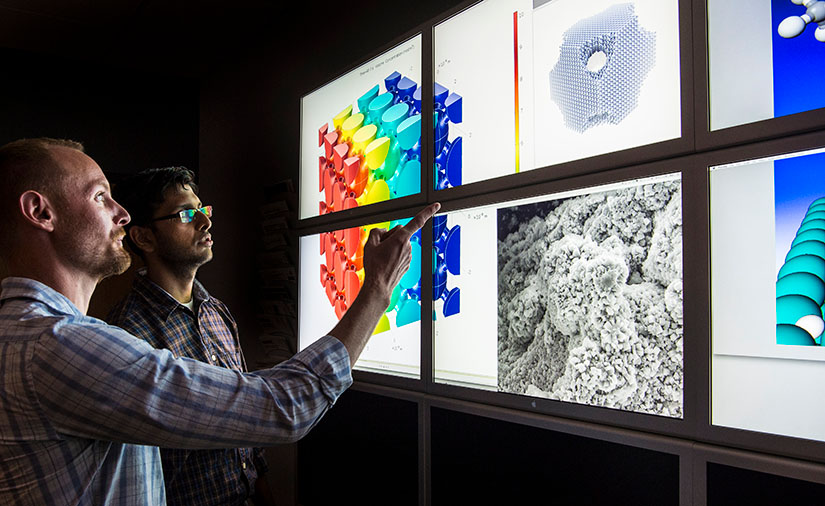
Explore how to partner with us.
Our researchers develop and use analytical characterization tools, computational modeling, techno-economic and life cycle analyses, and machine learning (ML) and artificial intelligence (AI) approaches to translate successful laboratory-scale bioenergy pathways to commercial scale by leveraging:
- Analytical characterization of biomass feedstocks, intermediates, and products and other renewable resources
- Multiscale computational modeling and simulations (atomic scale to industrial scale) to increase the efficiency of feedstock conversion and design scale-up
- ML and AI approaches to generate new research hypotheses and improve technology pathways
- Advanced analyses and models to understand cost drivers and perform sustainability evaluations of bioenergy processes and technologies.
Biomass and Bioproduct Characterization
We have deep expertise in tools and techniques for compositional and structural characterization of sustainable feedstocks, biofuels, and bioproducts. This research capability provides insights on how to optimize the properties of lignocellulosic biomass and other feedstocks for conversion, utilization, and storage processes. Analytical characterization tools include:
- Mass spectrometry
- Nuclear magnetic resonance
- Liquid chromatography
- Gas chromatography-mass spectrometry
- Fourier-transform infrared spectroscopy.
Laboratory Analytical Procedures
NREL provides laboratory analytical procedures to provide validated methods for biofuels and pyrolysis bio-oils research:
Computational Modeling and Simulations
Computational modeling and simulations are powerful tools that inform design and enable prediction from the atomic to refinery scale. This research capability is applied to fundamental scientific questions—such as elucidating molecular-scale structure, property, and function relationships—and to more applied projects such as optimizing process scale-up.
Modeling and Simulation
Deep Learning and Artificial Intelligence Approaches
We use ML and AI tools to accelerate data-mining from:
- Research databases (biological, chemical, polymer, physical)
- Multivariate spectroscopic, spectrometric, and imaging data
- Real-time measures of titers, rates, and yields in bioreactors.
Combining analytical and imaging tools, computer vision, and AI enables prediction of new products with new properties and process optimization for a range of energy technology applications.
Machine Learning Shortcuts Time Spent in Bench-Scale Research
Economic, Sustainability, and Market Analysis
NREL innovates using techno-economic and life cycle analyses and its Materials Flow through Industry modeling tool to quantify the economic viability and environmental sustainability of bioenergy processes and technology pathways. The goal is to support the transition of bio-derived fuels, materials, and products from proof-of-concept to market by highlighting technical and cost drivers through rigorous process modeling.
Techno-Economic and Life Cycle Analyses Support Better Decision-Making
Flagship Projects
These are some of our key collaborative research efforts in analysis and modeling:
- Consortium for Computational Physics and Chemistry (U.S. Department of Energy)
- AI-Enabled Hyperspectral Imaging Augmented With Multisensory Information for Rapid/Real-time Analysis of Non-Recyclable Heterogeneous Municipal Solid Waste for Conversion to Energy
- Economics and Sustainability of CO2 Utilization Technologies With Techno-Economic Analysis and Life Cycle Analysis
- Comprehensive Techno-Economic and Life Cycle Analyses Modeling for Integrated Biorefinery Conversion Processes for Thermochemical, Biochemical, and Algal Pathways
- Analysis for Decarbonization of Industrial Petrochemicals
- Biochemical Process Modeling and Simulation.
Contact
Contact Michael Crowley to leverage these capabilities and expertise or learn more about partnering with us.
Share

